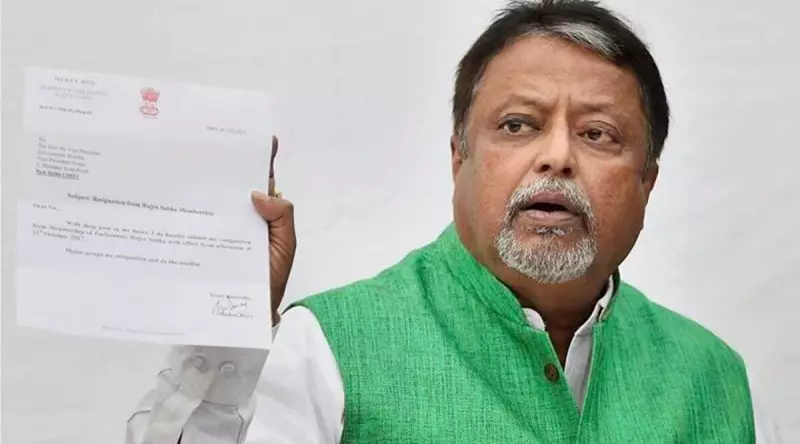
Bengal's Political Strategist Loses MLA Status
In a significant political development, the Calcutta High Court has disqualified Mukul Roy as a member of the West Bengal Legislative Assembly. The ruling delivered last Thursday marks a dramatic turn in the career of the man once known as the "Chanakya of Bengal politics" for his strategic acumen.
The Legal Battle and Defection Drama
The Bench of Justice Debangsu Basak and Justice Md Shabbar Rashidi overturned the Assembly Speaker's earlier decision that had upheld Roy's membership. This legal challenge was initiated by Leader of the Opposition Suvendu Adhikari and BJP MLA Ambika Roy, who questioned Roy's political standing after his dramatic return to the Trinamool Congress.
The controversy began when Roy, who had won the 2021 Assembly election from Krishnanagar Uttar seat in Nadia district on a BJP ticket, switched back to the TMC in June 2021. The political maneuvering became particularly contentious when Roy was appointed as chairperson of the Public Accounts Committee, a position traditionally reserved for opposition members.
The Speaker's insistence that Roy was "officially" still a BJP MLA at the time highlighted what political observers have called the "institutional ambiguity" surrounding defection cases in state assemblies across India.
A Political Career in Twilight
Roy's current situation presents a stark contrast to his once-formidable political presence. His son, Shubhrangshu Roy, revealed to The Indian Express that his father has been bedridden in a private Kolkata hospital for the past one-and-a-half years and doesn't respond to external stimuli.
"My father has been bed-ridden. He does not give any response. So we didn't try to intimate him about the high court order," the younger Roy stated, painting a poignant picture of the politician's current condition.
Roy's political journey reads like a textbook on Bengal's volatile political landscape. As a founding member of the TMC, he played a crucial role in helping party chief Mamata Banerjee establish her organization. His rise through the ranks saw him become general secretary, Rajya Sabha MP, and even a minister in the UPA 2 government handling the Shipping and Railways portfolios.
The Architect of Defection Politics
Roy's political significance became particularly evident after the TMC's historic victory over the Left Front in 2011. He emerged as the master strategist behind large-scale defections from the CPI(M) and Congress to the TMC fold. Councillors, MLAs, and zilla parishad members switched allegiances in coordinated waves under his guidance.
Between 2016 and 2021, defections became institutionalized in Bengal politics, with nearly 20 of Congress's 44 MLAs and eight of the Left's 32 legislators joining either the TMC or the BJP. This period cemented Roy's reputation as the face of Bengal's "defection politics."
In a surprising turn, Roy himself defected to the BJP in 2017, marking a pivotal moment for the party's expansion in Bengal. He helped the BJP construct an organizational presence where it traditionally had none, contributing significantly to its tally of 18 Lok Sabha seats in 2019 and facilitating the induction of several TMC heavyweights, including his current political adversary Suvendu Adhikari.
However, his return to the TMC immediately after the BJP's failed bid to oust Mamata Banerjee in the 2021 polls exposed the volatility that had come to characterize his political career.
From Kingmaker to Symbolic Figure
A senior TMC leader reflected on Roy's diminished stature, noting, "His name was once taken just after Mamata Banerjee in Bengal politics. He was so important and influential. Now he is lying on a bed and nobody goes to see him except his family."
The disqualification ruling comes at a time when Roy has been absent from public life for an extended period, with his protracted hospitalization reducing him to a symbolic figure rather than an active participant in Bengal's turbulent political arena.
The case sets an important precedent in the application of anti-defection laws in West Bengal and highlights the continuing political tensions between the ruling TMC and opposition BJP in the state.






